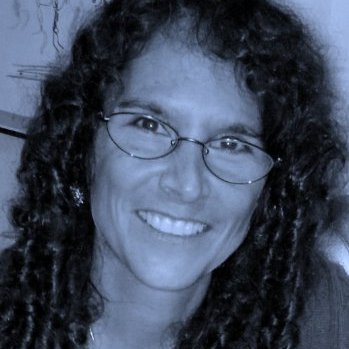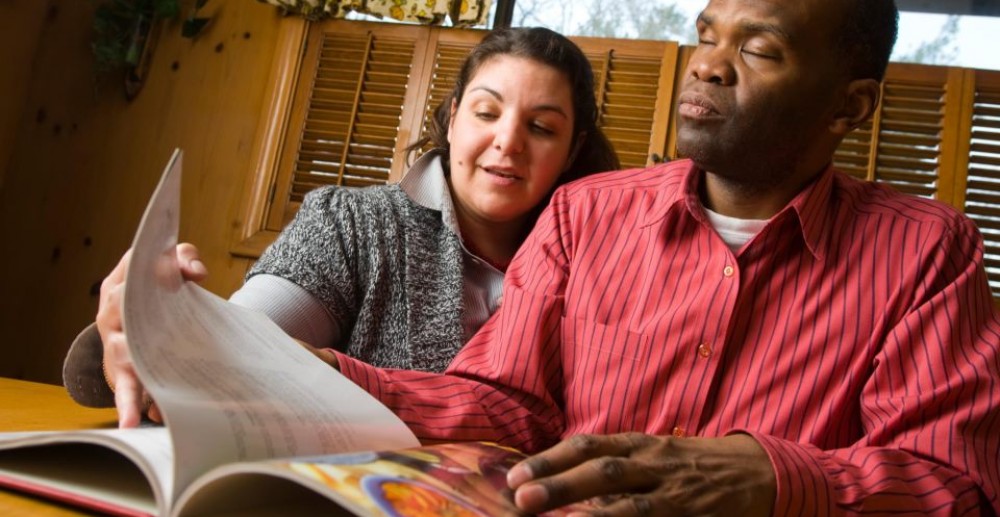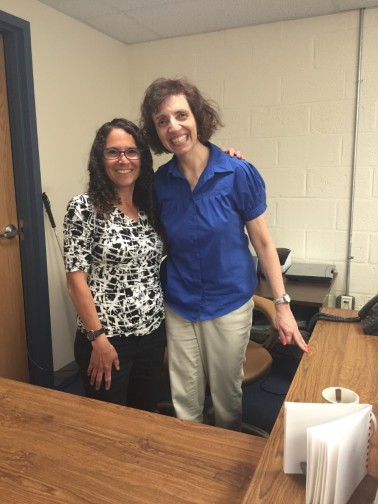 by Lori Berkey, MSW, LICSW, Massachusetts Association for the Blind and Visually Impaired (MABVI) Adjustment Counselor
by Lori Berkey, MSW, LICSW, Massachusetts Association for the Blind and Visually Impaired (MABVI) Adjustment Counselor
As a social worker who has worked with people with a range of challenges, I was delighted to join the MABVI team as an adjustment counselor last fall in their new Adjustment to Vision Loss Counseling Program.
My interest in working with people with sight loss is something that has grown over the years. Twelve years ago, I happened upon an ad in the local newspaper that said the Massachusetts Association for the Blind and Visually Impaired was seeking volunteers to help people who are blind with clerical work, reading their mail and going grocery shopping.
I figured that was something I could do, so I contacted their Volunteer Coordinator, Mary Haroyan, and signed up for an orientation where I learned special tips on communicating and serving as a sighted guide.
A dozen years later, I still cherish my bond with the now 99-year-old lady Mary paired me with. I loved accompanying her in the grocery store, having her feel her tomatoes and cucumbers to pick out the ones she wanted to buy. Now, I enjoy visiting her in a nursing home, seeing how she puts her other senses to use to live well with vision loss, as she taps her fingers during the sing-a-longs.
Shortly after I began volunteering for MABVI, when I was writing for a newspaper, I went to interview a local resident, Jerry Berrier, for a feature on his contributions serving as President of the Bay State Council of the Blind. Jerry and I had swapped emails in order to set up our meeting. Upon visiting him, it was the first time I became aware of screen reader and text-to-speech technology that assists people who are blind to communicate, surf the web, and do nearly everything a sighted person can do with a computer. In Jerry’s case, he could do way more than what most sighted people could!
Years later, I had an opportunity to work for a technology company that developed devices for people who are blind and those with low vision. I enjoyed training people how to use the devices and getting to meet product users at national conventions. That company was sold and their location where I was working closed.
Shortly after that, MABVI’s Statewide Director, Shaun Kinsella, told me about his dream of adding an Adjustment to Vision Loss Counseling program to MABVI’s comprehensive range of service offerings. Shaun knew about my background in social work, and I was honored to be invited onboard to assist in getting the program up and running.
While most of the numerous people with visual impairment or blindness I had met over the years were adapting to their sight loss quite well (traveling to shows, using technology, etc.), Shaun let me know about the many people who experience such depression over their sight loss that they are unable to even take advantage of the many services available to help them, such as occupational therapy, orientation and mobility and assistive technology training. People can feel devastated and not ready to hear about the numerous supports and tactics that are out there to enable people who are blind to live a full, satisfying life – to travel, work, love, parent, go to school, enjoy hobbies and sports and more.
What I’ve learned is that people who are experiencing vision loss often have already experienced other losses in their life. This is compounded by new losses such as the loss of being able to drive or to do other tasks the way they used to, and it adds to a person’s feeling of grief. The effect vision loss has on a person’s personal relationships, work or daily tasks, socialization and recreation can seem overwhelming. Anger, frustration, isolation, worry and hopelessness can creep in and people can feel that they are doomed to feel bad forever.
Many people don’t realize that the feelings they have are a normal part of the grieving process, and that working through their grief with an Adjustment Counselor is a way to move closer to feeling better.
When people are feeling down or anxious they may think they can’t do ANYTHING they used to do when they could see better, but in talking with a counselor they can learn to challenge that all-or-nothing thinking and realize there are still many things the person can do, some of it may just have to be done in a different way.
Sometimes issues come up in personal relationships due to how vision loss affects long-standing roles the person has held in a relationship. An Adjustment Counselor can help a person learn ways to communicate with family members about their condition and feelings, and about new and different roles that they can fill to restore mutuality.
With this in mind, we at MABVI are very excited to offer this new Adjustment to Vision Loss Counseling Program. It provides a place where people can be welcomed to a nonjudgmental, supportive process in which they can work through their emotional reaction to their sight loss and build coping skills. A place where, piece by piece, they can begin to live well with vision loss.
We invite anyone who is struggling with the emotional impact of their vision loss to contact MABVI to schedule an Adjustment to Vision Loss Counselling appointment.
To learn more about MABVI’s Adjustment Counseling service, call 888-613-2777, email mabvi@mabcommunity.org, or visit our website.

